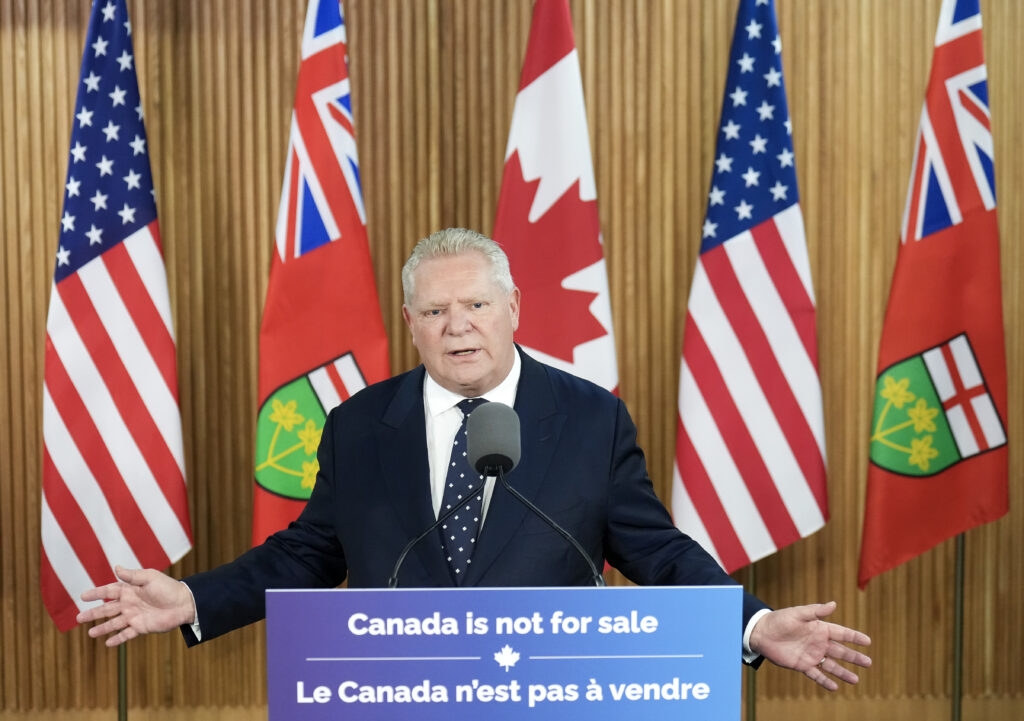Ontario Imposes 25% Tariff on Electricity Exports to U.S. Amid Rising Trade Tensions

- Ontario introduces a 25% tariff on electricity exports to Michigan, Minnesota, and New York in response to U.S. tariffs.
- The tariff could cost U.S. consumers up to $400,000 daily, affecting approximately 1.5 million homes and businesses.
- Increased economic tensions between Canada and the U.S. could complicate broader cooperation on climate and sustainability issues.
Effective immediately, the Ontario government has imposed a 25% surcharge on electricity exports to the United States, targeting power supplies to Michigan, Minnesota, and New York. This measure responds directly to recent U.S. tariffs affecting Canadian imports.
Ontario Premier Doug Ford emphasized the stance against U.S. economic pressure:
“President Trump’s tariffs are a disaster for the U.S. economy. They’re making life more expensive for American families and businesses. Until the threat of tariffs is gone for good, Ontario won’t back down.”

The surcharge, valued at approximately $10 per megawatt-hour, is expected to generate between $300,000 and $400,000 per day, directly impacting roughly 1.5 million American homes and businesses.
Stephen Lecce, Ontario’s Minister of Energy and Electrification, highlighted the province’s historical role as an energy exporter:
“For decades, Ontario has powered American homes, factories, offices, and jobs, and we will not stand by as our vital electricity exports are taken for granted.”

Broader Sustainability Concerns
The escalation of trade disputes between Canada and the U.S. risks complicating cross-border sustainability and climate collaboration. Reliable cross-border electricity trade has historically supported regional sustainability strategies, especially with Ontario exporting significant amounts of electricity—12 million megawatt-hours in 2023 alone—to its American neighbors.
In parallel, the recent U.S. withdrawal from the U.N. Climate Damage Fund highlights the potential impact economic tensions could have on international climate-related cooperation. Economic disputes, including tariffs like these, could further strain collaborative sustainability efforts, potentially hindering broader North American climate commitments and clean energy transitions.
Industry and Regulatory Reactions
Grid operators and market monitors in affected regions have voiced concerns. Tariffs on electricity imports could disrupt system reliability and increase consumer costs. ISO New England and NYISO have requested clarity from the Federal Energy Regulatory Commission (FERC) regarding the implementation and impact of these tariffs.
New York Governor Kathy Hochul and Senate Minority Leader Chuck Schumer warned of significant economic implications, calling the tariffs “dangerously short-sighted” and highlighting potential market disruptions and increased utility costs for American consumers.
Looking Forward
The Ontario government signaled readiness to escalate its tariff response or entirely halt electricity exports if necessary, underscoring the volatility of current trade relations.
This emerging economic dispute underlines the interconnectedness of trade policy, energy security, and sustainability efforts. The international community, including Canada and the U.S., faces increasing challenges in balancing economic and environmental priorities amidst growing geopolitical tensions.








